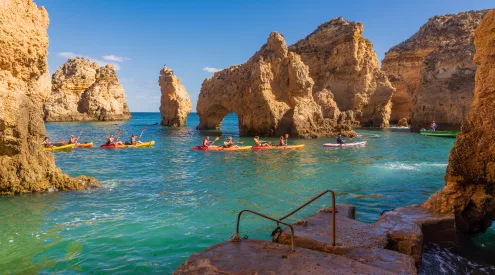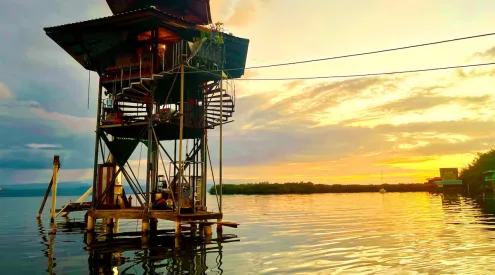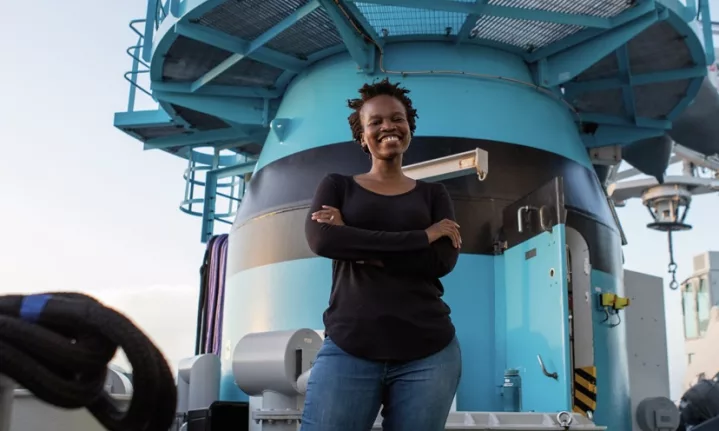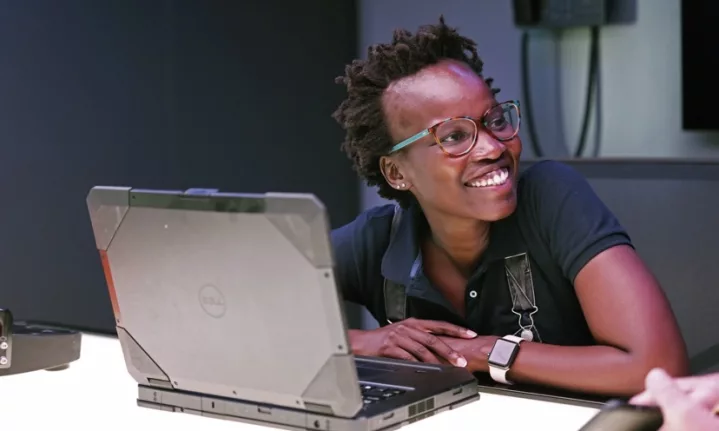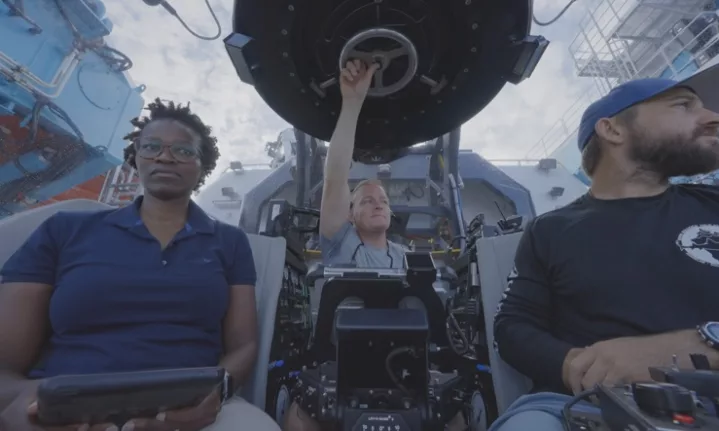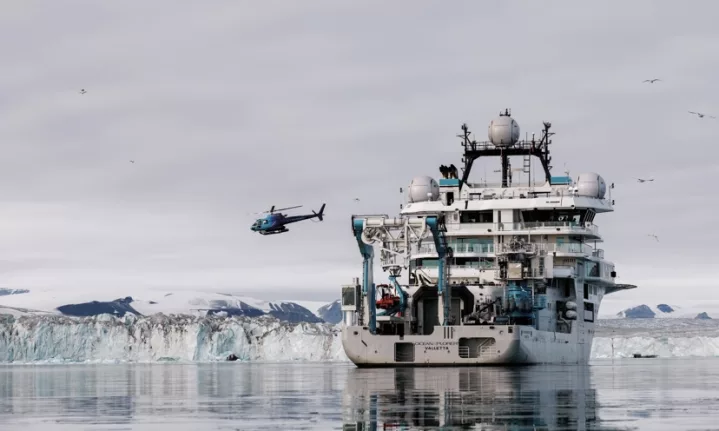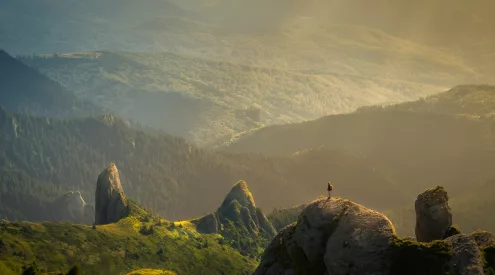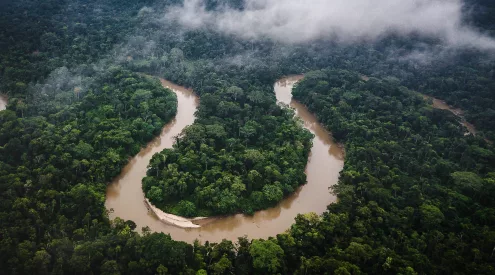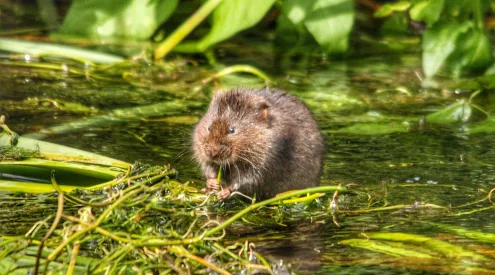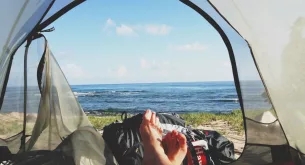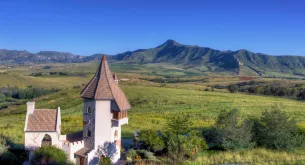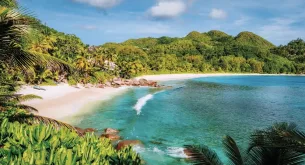We always need a character to tell a story, and most people respond best to bold personalities, but what about the little guys?
Habitats like the seabed don’t tend to receive much attention. You’re like, ‘oh, bland sand,’ but living among those grains are organisms working hard to power the livelihoods of larger animals.
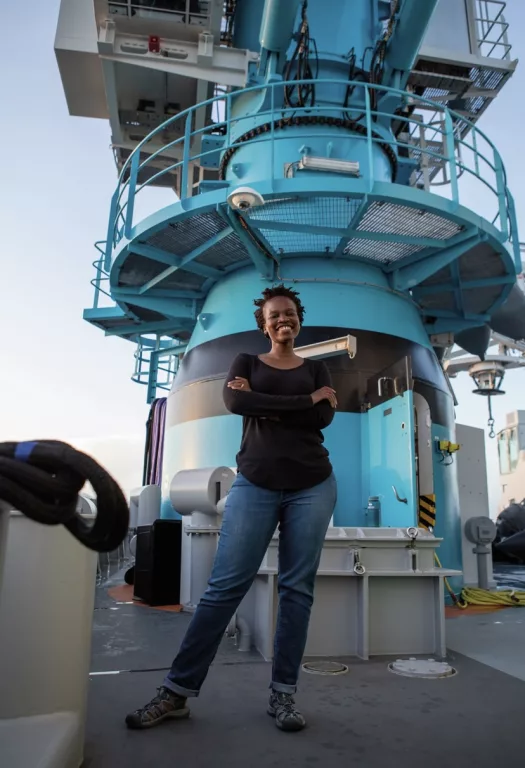
Eighty percent of the world’s oceans are entirely unknown – which means we can still save them.
So, I look at the bigger picture and how each entity or unit collaborates to ensure this vast environment’s functionality.
What lives on the seabed, why it’s there, what influences its occurrence in a particular area and how marine life varies as you move along the South African maritime domain, the ocean. My work also involves outreach projects, showing people the sea, guest lecturing and mentoring.
As a black South African researcher, I can relate to those less-thought-of units, the building blocks of the ocean.
We get into spaces where well-known people have done remarkable things. Not to take that away from them, but we’re in the background working equally hard to ensure we understand and generate knowledge.
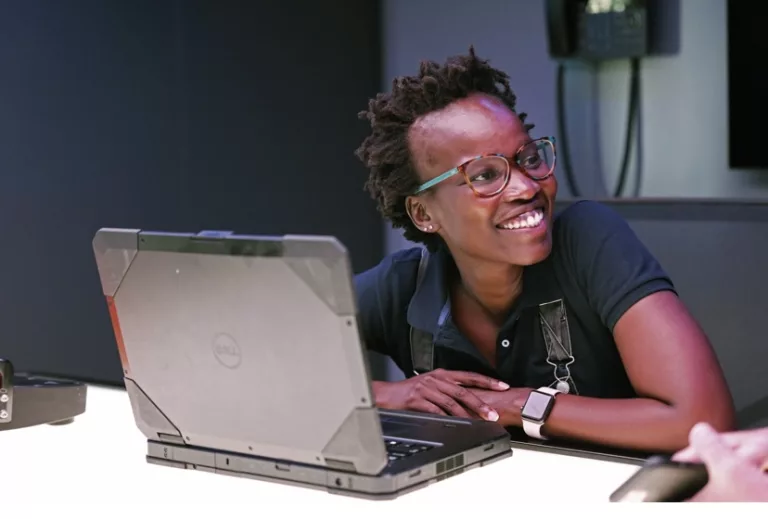
So, no matter how small (you think) you are, you can always do remarkable things and be part of something huge. You can always do what little you can to influence change.
I didn’t get into marine science because I wanted to break glass ceilings. It was more about passion, intrigue and questioning what I’d learnt about the ocean as a child, growing up fearing the sea more out of respect. I needed to understand why we should respect the marine environment. You can’t protect what you don’t know.
ALSO READ: SA wildlife filmmaker scoops award for African vultures documentary
Still, representation on screen and in marine science matters, so I’m happy that my existence in this space inspires people (from my background) to explore the field.
Growing up, I didn’t know (someone from my background) could have a career in deep-sea research. So, I participated in National Geographic’s six-part documentary OceanXplorers with Shark Biologist Melissa Cristina Márquez, ex-Royal Marine Aldo Kane and Ocean Technology Innovator Eric Stackpole.
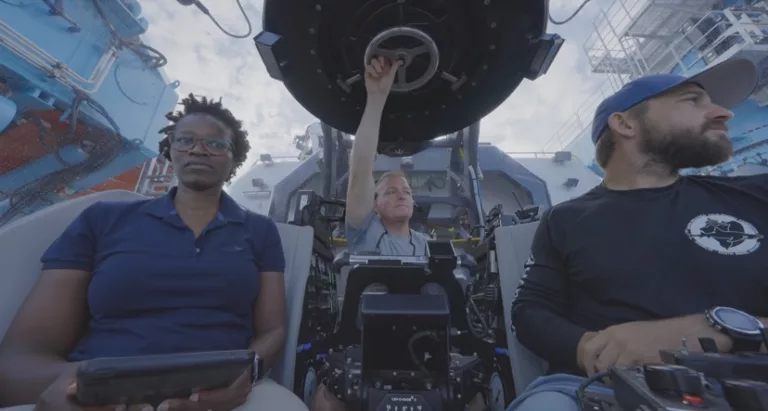
Aboard the OceanXplorer, OceanX’s state-of-the-art scientific research vessel, we investigated the furthest frontiers of the world’s oceans. The depths of the Atlantic in the Azores, the shallows of the Bahamas, the warm waters of the Caribbean and the arctic shores of Svalbard, Norway.
We followed marine animals’ journeys to help us tell the story of how dynamic, interconnected and inspiring the ocean is.
Understanding this environment better without centralising ourselves helped us recognise our integral role in the ecosystem. Travelling in a submarine to depths of up to 1 000m, you feel insignificant in the grand scheme of things but realise every individual’s neglectful actions combined have serious consequences.
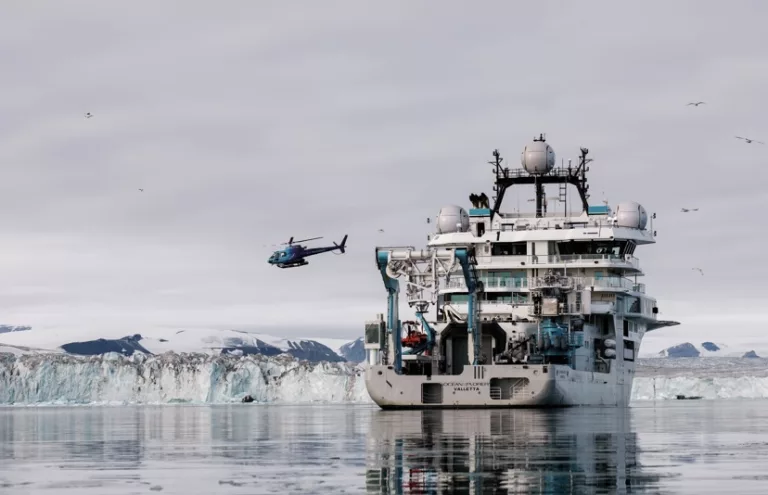
We sought information to help us draw a more holistic picture of how the ocean operates and how we can continue to benefit from its services.
While that data helps us understand aspects like prey-to-prey interactions and how orcas tackle their prey, a fight we witnessed between an orca and a hammerhead in the Bahamas was authentic; nevertheless, some viewers may find the footage distressing.
Cruelty is a subjective term because the animals had families to feed. It was survival of the fittest: evolution happens in every ecosystem, not just marine but on land. Humans experience a range of emotions, so each viewer will perceive this documentary and be moved by it for different reasons.
There is a lot of noise, rightfully so, around how climate variability is pushing things to new levels. I think OceanXplorers is more a story of hope that there are still awe-inspiring pockets beaming with life, areas we can save.
We need all hands on deck, no matter how small or big you think you are. Do you think this is not your problem? It’s everyone’s problem. I hope this documentary evokes viewers’ awareness, passion and inspiration.
About OceanXplorer
OceanXplorer, purpose-built by the global science, media and exploration non-profit OceanX, is a technological marvel with the power to explore the depths of the world’s oceans.
The ship has two submersibles, Neptune and Nadir, which can dive to 1 000 m for up to 72 hours. On board OceanXplorer is a helicopter, multiple marine laboratories and a media studio where the crew can capture new science and real-time footage for the screen.
Watch the OceanXlplorers trailer here.
This article was written by Lisa Abdellah for Getaway’s December 2024 print edition. Find us on shelves for more!
(Pictures: Courtesy of National Geographic)
Follow us on social media for more travel news, inspiration, and guides. You can also tag us to be featured.
TikTok | Instagram | Facebook | Twitter
ALSO READ: ‘I Speak for the Sea’: SA dive master committed to conservation

